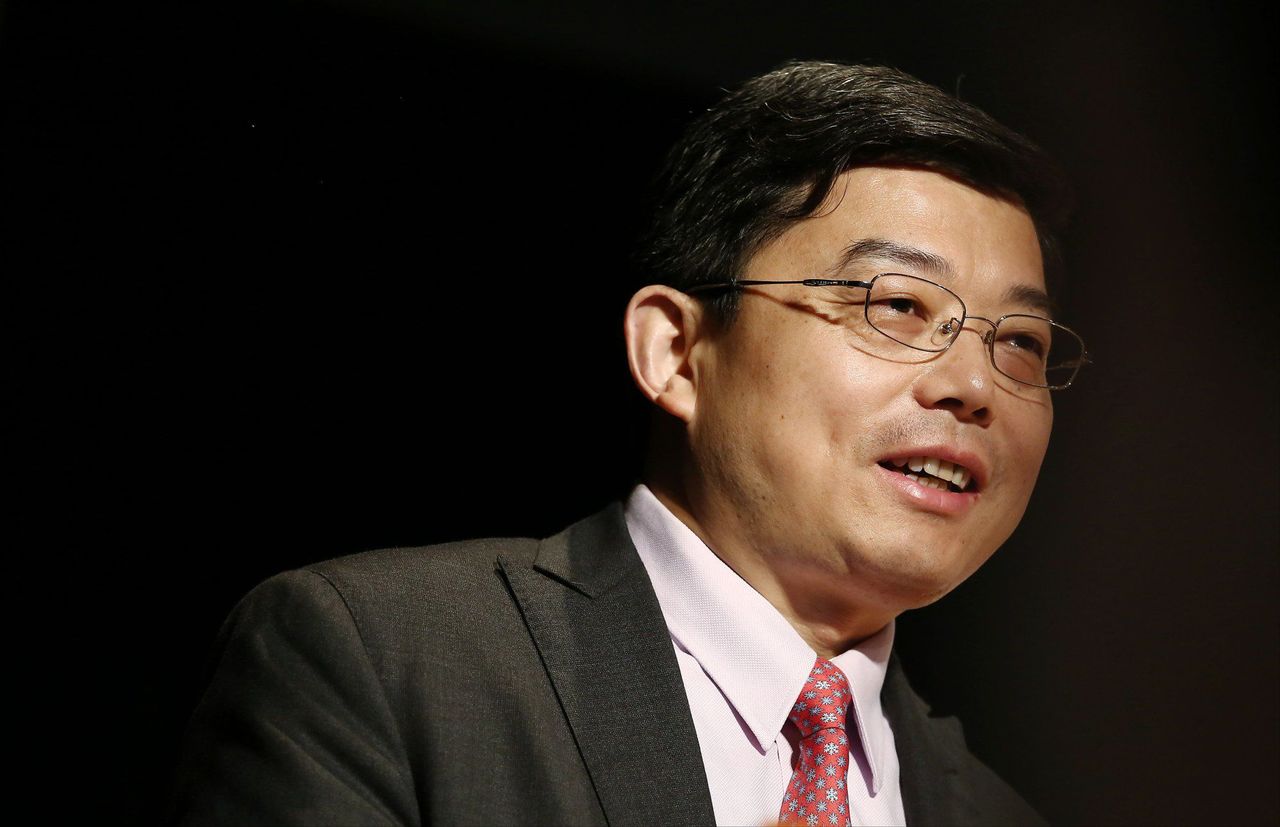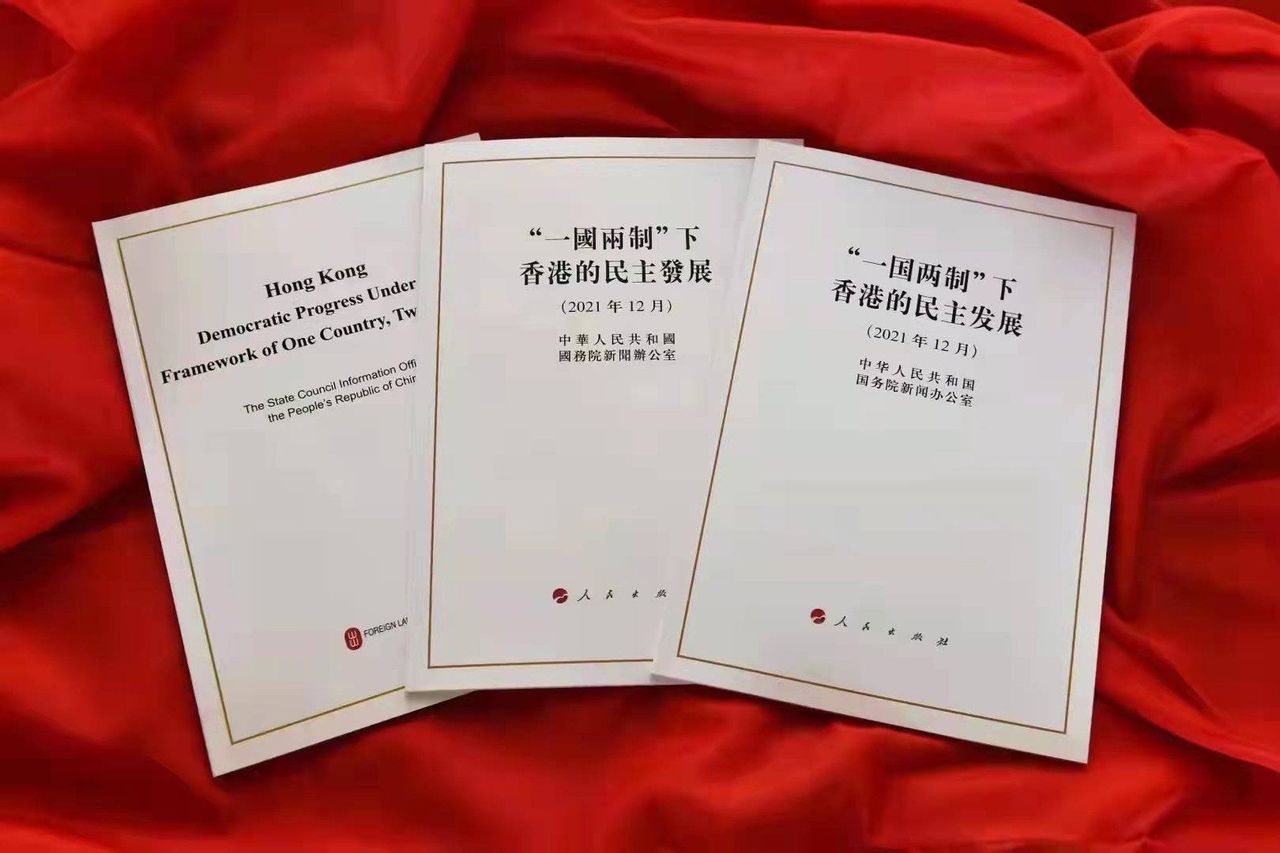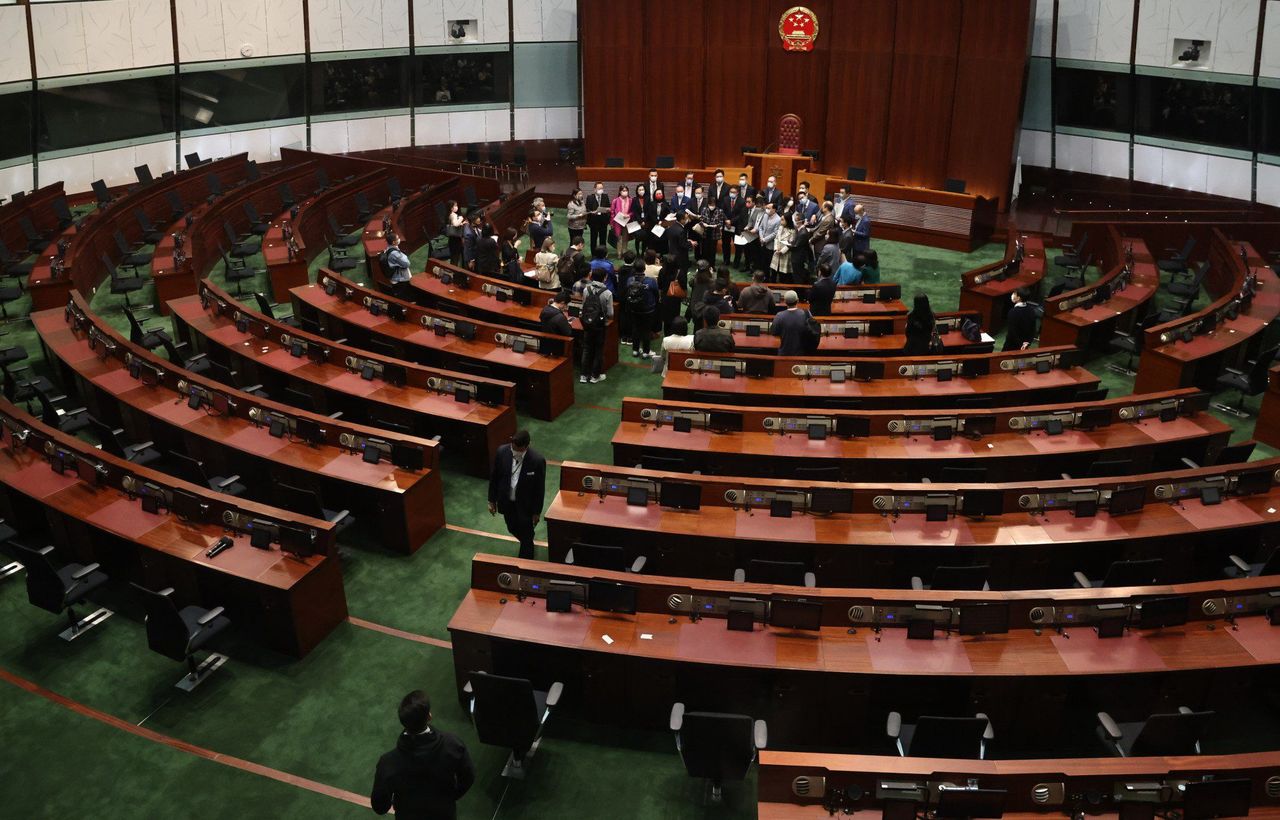
Communist Party ‘owns intellectual property’ of Hong Kong democracy
Hong Kong’s political development is back on the right track after many wasted years, with the Communist Party and Chinese people owning the “intellectual property” to the city’s emerging brand of democracy, mainland experts on local affairs have declared.
Unlike the West which they said did not care for democracy when Britain ruled the former colony, the central government had been committed from the outset to plan for Hong Kong’s democratic path right up to the recent drafting of a white paper, showing its “selfless love” for the city.
The officials also took aim at “Western smears” of the recent Legislative Council election, as they spelled out how the Chinese constitution and Hong Kong’s Basic Law had laid down the foundation for the city’s democratic development.
 Wang Zhenmin, director of Tsinghua University’s Centre for Hong Kong and Macau Studies.
Wang Zhenmin, director of Tsinghua University’s Centre for Hong Kong and Macau Studies.
“The white paper exposed the true colours of the British government, which did not bother to introduce democracy during its colonial rule in Hong Kong,” Wang Zhenmin, director of Tsinghua University’s Centre for Hong Kong and Macau Studies, told a Monday press conference in Beijing.
Arguing that only the recent white paper by the central government had provided the correct understanding of Hong Kong’s democracy, he said: “The Chinese constitution and Hong Kong’s Basic Law laid down the foundation for democratic development in Hong Kong. The Chinese Communist Party and the Chinese people, including Hong Kong compatriots, own the intellectual property of Hong Kong democracy.”
“Whoever genuinely loves and cares about Hong Kong can sense the words full of emotions and selfless love between the lines after reading the white paper,” added Wang, who served as the legal affairs chief of the central government’s liaison office in the city from 2016 to 2018.
Han Dayuan, another speaker at the briefing and a member of the Basic Law Committee which advises Beijing on Hong Kong’s mini-constitution, said the dichotomy between the pan-democratic and pro-establishment camps was unhelpful and worked against uniting Hong Kong society.
Responding to a question on election schedule, Wang said: “Hong Kong wasted a lot of time and resources in the past few years, leading to political chaos and livelihood problems.”
Wang and fellow officials said the political upheavals had affected the city’s economic development and solutions to livelihood problems.
But during the press conference, organised by the State Council Information Office, they did not delve into the livelihood issues that needed solving, beyond saying society needed to “recuperate”.
The office was behind the white paper issued a day after Hong Kong’s first Legco election on December 19 following Beijing’s “patriots-only” overhaul of the city’s political system.
It marked the second such paper on local affairs since 2014, spelling out the central government’s views on developing Hong Kong democracy “with its own characteristics”, while renewing Beijing’s commitment to the city’s leader and lawmakers being elected by universal suffrage.
 Copies of the white paper issued by the State Council Information Office.
Copies of the white paper issued by the State Council Information Office.
According to Articles 45 and 68 of the Basic Law, the method for selecting them shall be specified “in light of the actual situation” in Hong Kong, and “in accordance with the principle of gradual and orderly progress”.
While the articles stressed this as an “ultimate” goal, critics have questioned Beijing’s commitment to the target after the 2019 anti-government protests and the ensuing political overhaul.
On Monday, asked about the white paper’s stated goal on universal suffrage, Wang stopped short of offering a timeline, saying only that the road map would be tailored according to “practical realities”.
“Universal suffrage remains a goal in the development of democracy in Hong Kong. The overhaul of the election for the chief executive and Legco was based on the Basic Law and according to the current situation in Hong Kong,” he said.
 Hong Kong’s newly elected lawmakers visit the legislative chamber.
Hong Kong’s newly elected lawmakers visit the legislative chamber.
Under the electoral revamp introduced in March, Legco expanded from 70 to 90 members, with a new 40-seat constituency hand-picked by a newly empowered Election Committee, which chooses the city’s chief executive. Another 30 seats were given to functional constituencies to represent the trades and professions while the remaining 20 – slashed from 35 – were directly elected posts.
In the December 19 Legco election, all but one seat went to the already dominant pro-Beijing bloc, with centrists and moderates thrashed amid a record low turnout of 30.2 per cent.
The election had focused more on livelihood issues which people cared about, according to Wang, as he noted how in the past both the central government and Hong Kong had wasted time and resources on the city’s democratic development, ending only in “political upheavals and delays in economic development”.
“Now that we have a new electoral system and have paid a hefty ‘tuition fee’ for this ... we should treasure it, and consolidate it,” he said.
Han criticised political terms used in Hong Kong since its 1997 return to Chinese rule, saying: “People have been defined as being democrats or not, pro-establishment or not. Such a choice of words and this way of thinking do not match the principle of ‘loving the country’ and ‘loving Hong Kong’.”
“Such a binary distinction easily puts these labels on people with different political views among those who love the country and love Hong Kong,” he added. “This deliberate distinction would dismantle patriotic forces into different factions. This is not helpful in uniting different sectors in society.”
Han agreed that Hong Kong’s democratic development must proceed within the framework of the Chinese constitution and the city’s Basic Law.
“Democracy is empty talk when national security is not properly safeguarded,” he said.
The conference also featured speaker Zhi Zhenfeng, a research fellow at the Chinese Academy of Social Sciences’ Institute of Law.
Ivan Choy Chi-keung, a political scientist at Chinese University, said it would be a difficult task for Beijing to sell its narrative on Hong Kong’s democracy.
“Hong Kong people are dissatisfied with the current status of Hong Kong where the freedom and democracy they enjoyed in the past have been fading,” he said.
“It is not about what mainland experts call political chaos, but the transparency of our political system,” he argued.
Wang also addressed the record low turnout in the Legco poll, noting that an even smaller percentage of voters showed up for the recent New York City mayoral election.
“Turnout rate can’t tell everything,” he said.
Some 21 per cent of 5.6 million registered New York voters cast ballots in that poll in November.
Separately on Monday, the Hong Kong and Macau Affairs Office issued a statement lashing out at Western politicians and foreign media for claiming the recent Legco election had excluded critics who were being suppressed and made for a uniform legislature.
A spokesman wrote that anti-China figures had committed all kinds of crimes and violence under the guise of “democracy” to achieve their own sinister goals. They had been dealt with in accordance with the law.
By contrast, the election had excluded these agitators and given voters a chance to choose from “patriots” who represented a diversity of backgrounds.
Accusing Western diplomats and media of having “dementia”, the spokesman added that it was the disruptive acts of the anti-China agitators that made the goal of universal suffrage unattainable as scheduled in 2015, and that they had contributed to the setbacks Hong Kong’s “democratic development was suffering”.











